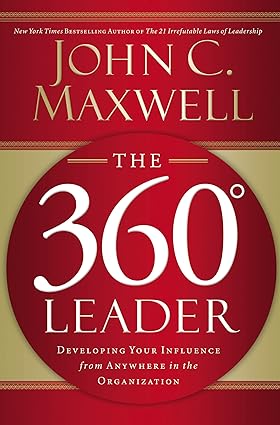apprehensions and ideas of Christ, and the work of redemption, and
the glorious way of salvation by him. An inward, sweet sense of
these things, at times, came into my heart; and my soul was led
away in pleasant views and contemplations of them. And my mind was
greatly engaged to spend my time in reading and meditating on
Christ, on the beauty and excellency of his person, and the lovely
way of salvation by free grace in him. I found no books so
delightful to me, as those that treated of these subjects. Those
words Cant. ii. 1. used to be abundantly with me, “I am the Rose of
Sharon, and the Lily of the valleys.” The words seemed to me
sweetly to represent the loveliness and beauty of Jesus Christ. The
whole book of Canticles used to be pleasant to me, and I used to be
much in reading it, about that time; and found, from time to time,
an inward sweetness, that would carry me away, in my
contemplations. This I know not how to express otherwise than by a
calm, sweet abstraction of soul from all the concerns of this
world; and sometimes a kind of vision, or fixed ideas and
imaginations, of being alone in the mountains, or some solitary
wilderness, far from all mankind, sweetly conversing with Christ,
and wrapt and swallowed up in God. The sense I had of divine things
would often of a sudden kindle up, as it were, a sweet burning in
my heart; an ardor of soul, that I know not how to express.
Not long after I first began to experience these things, I
gave an account to my father of some things that had passed in my
mind. I was pretty much affected by the discourse we had together;
and when the discourse was ended, I walked abroad alone, in a
solitary place in my father’s pasture, for contemplation. And as I
was walking there, and looking upon the sky and clouds, there came
into my mind so sweet a sense of the glorious majesty and grace of
God, as I know not how to express. I seemed to see them both in a
sweet conjunction; majesty and meekness joined together: it was a
sweet, and gentle, and holy majesty; and also a majestic meekness;
an awful sweetness; a high, and great, and holy gentleness.
After this my sense of divine things gradually increased, and
became more and more lively, and had more of that inward sweetness.
The appearance of everything was altered; there seemed to be, as it
were, a calm, sweet cast or appearance of divine glory in almost
everything. God’s excellency, his wisdom, his purity and love,
seemed to appear in everything; in the sun, moon, and stars; in the
clouds and blue sky; in the grass, flowers, trees; in the water and
all nature; which used greatly to fix my mind. I often used to sit
and view the moon for a long time; and in the day spent much time
in viewing the clouds and sky, to behold the sweet glory of God in
these things: in the mean time, singing forth, with a low voice, my
contemplations of the Creator and Redeemer. And scarce anything,
among all the works of nature, was so sweet to me as thunder and
lightning; formerly nothing had been so terrible to me. Before, I
used to be uncommonly terrified with thunder, and to be struck with
terror when I saw a thunder-storm rising; but now, on the contrary,
it rejoiced me. I felt God, if I may so speak, at the first
appearance of a thunderstorm; and used to take the opportunity, at
such times, to fix myself in order to view the clouds, and see the
lightnings play, and hear the majestic and awful voice of God’s
thunder, which oftentimes was exceedingly entertaining, leading me
to sweet contemplations of my great and glorious God. While thus
engaged, it always seemed natural for me to sing, or chant forth my
meditations; or to speak my thoughts in soliloquies with a singing
voice.
The heaven I desired was a heaven of holiness; to be with God,
and to spend my eternity in divine love, and holy communion with
Christ. My mind was very much taken up with contemplations on
heaven, and the enjoyments there; and on living there in perfect
holiness, humility and love; and it used at that time to appear a
great part of the happiness of heaven that there the saints could
express their love to Christ. It appeared to me a great clog and
burden, that what I felt within, I could not express as I desired.
The inward ardor of my soul seemed to be hindered and pent up, and
could not freely flame out as it would. I used often to think how
in heaven this principle should freely and fully vent and express
itself. Heaven appeared exceedingly delightful, as a world of love;
and that all happiness consisted in living in pure, humble,
heavenly, divine love.
I remember the thoughts I used then to have of holiness; and
said sometimes to myself, “I do certainly know that I love
holiness; such as the gospel prescribes.” It appeared to me, that
there was nothing in it but what was ravishingly lovely; the
highest beauty and amiableness – a divine beauty; far purer than
anything here upon earth; and that everything else was like mire
and defilement in comparison of it.
Holiness, as I then wrote down some of my contemplations on
it, appeared to me to be of a sweet, pleasant, charming, serene,
calm nature; which brought an inexpressible purity, brightness,
peacefulness and ravishment to the soul. In other words, that it
made the soul like a field or garden of God, with all manner of
pleasant flowers; enjoying a sweet calm, and the gently vivifying
beams of the sun. The soul of a true Christian, as I then wrote my
meditations, appeared like such a little white flower as we see in
the spring of the year; low and humble on the ground, opening its
bosom to receive the pleasant beams of the sun’s glory; rejoicing,
as it were, in a calm rapture; diffusing around a sweet fragrancy;
standing peacefully and lovingly, in the midst of other flowers
round about; all in like manner opening their bosoms, to drink in
the light of the sun. There was no part of creature – holiness that
I had so great a sense of its loveliness, as humility, brokenness
of heart and poverty of spirit; and there was nothing that I so
earnestly longed for. My heart panted after this – to lie low
before God, as in the dust; that I might be nothing, and that God
might be «all»; that I might become as a little child.
The End



















